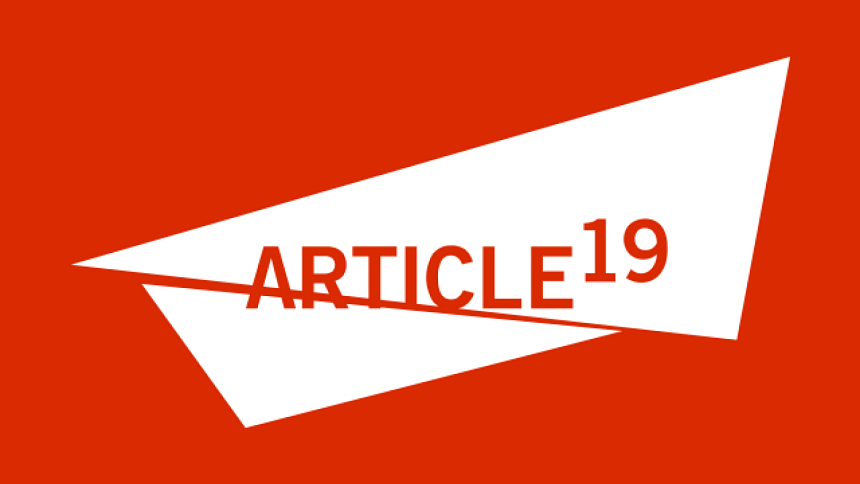Article 19 urges govt to protect journalists, amend repressive laws

Article 19 has called for the government to protect and offer legal support for journalists as well as review and amend repressive laws to ensure the freedom of expression, media freedom, and the safety of journalists.
It also suggested that the government guarantees adequate salaries and benefits for journalists, as these adversely affect the journalists' professional standards.
Article 19, an international human rights organisation, made the recommendations to the Bangladesh Media Reform Commission on February 23, 2025, highlighting necessary legal and policy reforms.
In a statement issued yesterday, Article 19 said Bangladesh's media landscape, though diverse, faces significant challenges due to the lack of legal protections for journalists, media ownership influenced by political affiliations, and high levels of self-censorship.
It called on the interim government to review and amend repressive laws in accordance with the International Covenant on Civil and Political Rights (ICCPR).
The laws that require review and amendments include the Code of Criminal Procedure 1898; The Bangladesh Television Authority Act 2001, the Telegraph Act 1885 and the Wireless Telegraph Act 1933, the Official Secrets Act 1923, the Censorship of Films Act 1963, the Right to Information Act 2009; the Cyber Security Act 2023, the Printing Presses and Publications (Declaration and Registration) Act 1973.
It also suggested amending the Penal Code 1860, the Information and Communication Technology (ICT) Act 2006, Draft Data Protection Act 2025, draft National Artificial Intelligence Policy 2024, the Post Office Act 1869, the Foreign Relations Act 1932, the Special Powers Act 1974, the Prohibition of Indecent Advertisement Act 1963, the Code of Civil Procedure 1909, the Contempt of Court Act 2013 and the Press Council Act 1974.
These acts grant authorities the power to ban or close newspapers and other publications on grounds of defamation, sedition, acts against sovereignty and decency, among others, provide authorities with strict control over TV broadcasting, grant control over the flow of information, put restrictions on journalists – especially those working on public interest issues and even allows surveillance of online activities, and strict control on what information and opinions can be published online
The rights body said journalists' professional standards are being adversely affected by inadequate salaries and benefits.
"It is essential for the government to coordinate with media owners to establish a fair salary structure, secure working conditions, healthcare, retirement benefits, and workplace safety to encourage journalists to work responsibly."
Article 19 said it is crucial that the government create effective mechanisms for legal action against attacks and threats to journalists, as well as to stop false and harassing lawsuits, so they can continue their work independently and without fear.
It called for the government to initiate a national action plan to ensure the safety of female journalists in Bangladesh, in line with the United Nations Security Council Resolution 1325 on Women, Peace, and Security.
"The government must ensure the free flow of information by avoiding internet shutdowns, content blocking, and filtering, so that citizens' right to internet freedom and access to information is protected."
Article 19 has urged the government to act on these recommendations and foster a media environment that upholds democracy, transparency, and human rights.

 For all latest news, follow The Daily Star's Google News channel.
For all latest news, follow The Daily Star's Google News channel. 



Comments